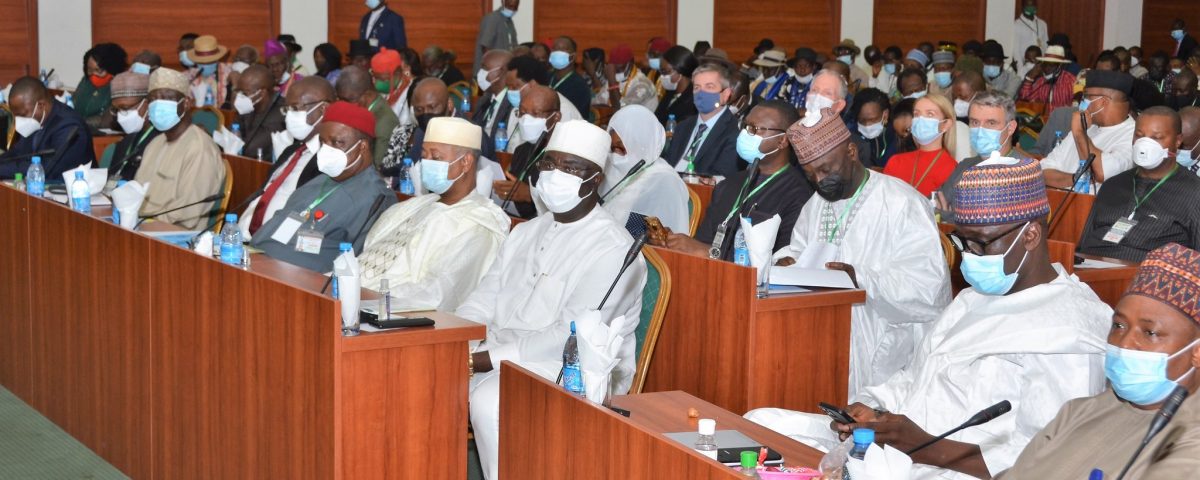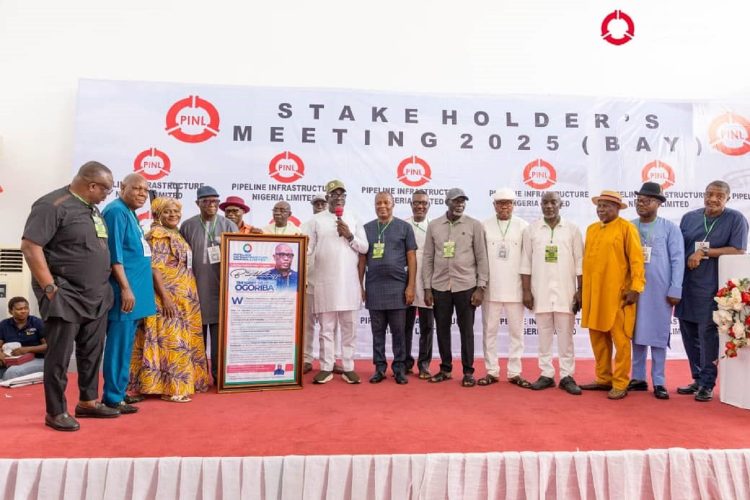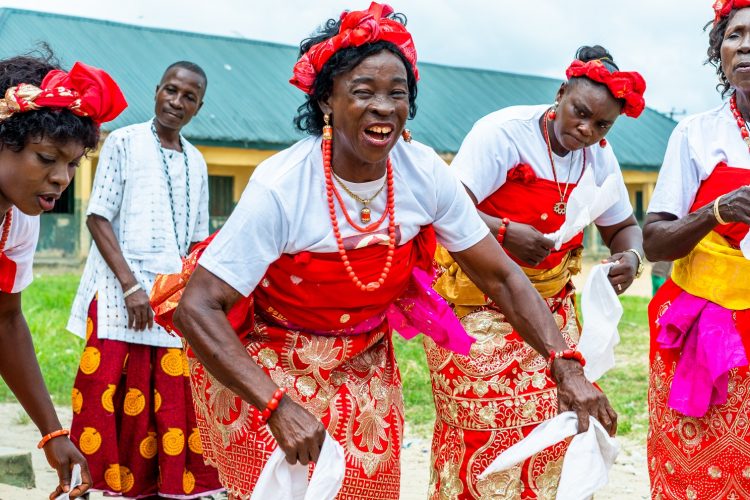
Petroleum Industry Bill, 2020
January 27, 2021
Terhemen Agabo: The Poverty Situation in Nigeria and Newton’s First law of motion
February 1, 2021
Executive Summary
The Host Communities Development Section of the Petroleum Industry Bill, 2020 (hereafter called the “Host Communities Development Bill”) presents an important opportunity to help the most affected communities in the Niger Delta experience much needed socio-economic development. With some amendments, e.g.:
• Allowing institutionalized Foundations and long-term Corporate Social Responsibility (CSR) construction projects continue;
• Streamlining government resources towards continuing the financing of regional NGOs;
• Mandating Indigenous representation on the trust’s Board of Trustees;
• Dedicating funds for technical assistance and capacity building of the Trusts that are to be created
• Sharing responsibilities relating to Host Communities Development between the Settlors and the Government
With these changes, the Bill will be better tailored to facilitate the desired advancement within the region.
Introduction
Nigeria is planning sweeping reforms of the oil and gas sector through a series of reforms known collectively as the Petroleum Industry Bill (PIB). One of the laws that specifically target local communities is commonly cited as the Host Communities Development Bill. It mandates oil operators (hereafter “Settlors”) set up a trust for the benefit of the communities in their area of operations. After an analysis was conducted by concerned NGOs, below are recommendations proposed that the Legislature should consider as the Bill continues to take shape.
1. Excessive Influence of, and Responsibilities for the Settlors
The Sections listed below are a few that highlight the range of responsibilities earmarked for the Settlors in the latest draft of the Bill
Section 235: Incorporation of host communities development trusts
Section 240: Sources of funding for petroleum host communities development trust
Section 242: The Board of trustees, composition, management, etc
Section 245: Matrix for distribution of trust fund
Section 251: Host community needs assessment
Concerns
The requirement of the Operators to conduct host community needs assessment upon receipt of license or lease, fund host community development trust fund (2.5% of actual annual operating expenditure) and Settlors in shallow water and deep offshore to determine “host communities confers everything from beginning till end on the settlor and omits the government, especially at State level, which currently plays this role and ensures buy-in and neutrality.
Recommendations
Given that these communities also fall within government jurisdictions, determining which communities are to be included and preventing communities from being fractioned, is a role that government is best suited to play with input from settlors, communities and other stakeholders. The government (State governments) is best equipped to mitigate issues of land disputes, resolutions, and security operations. State governments need to be involved in this to weigh in on dispute resolution given their proximity to the host communities.
2. Local Representation on the Board of Trustees
Section 242. The Board of trustees, composition, management, etc.
1. The constitution of the host communities development trust shall contain provisions requiring the Board of Trustees to be set up by the settlor, who shall determine its membership and the criteria for their appointment, provided that the membership of the Board of Trustees of the host communities development trust shall be subject to the approval of the Commission or the Authority, as the case may be.
2. The settlor shall, in the determination of membership of the Board of Trustees, include persons of high integrity and professional standing, who may not necessarily come from any of the host communities.
3. The settlor shall determine –
a. the selection process, procedure for meeting, financial regulations and administrative procedures of the Board of Trustees
b. the remuneration, discipline, qualification, disqualification, suspension and removal of members of the Board of Trustees; and
c. other matters other than the above relating to the operation and activities of the Board of Trustees.
4. Each member of the Board of Trustees shall serve a term of 4 years in the first instance and may be reappointed for another term of 4 years and no more.
5. The Board of Trustees shall have a secretary, who shall be appointed by the settlor to keep the books of the Board.
Concerns
Based on Section 242 (1-5), if the final approving authority is the Trust’s Board of Trustees and it is comprised of selected representatives from oil companies, then those oil companies wield the ultimate power to dictate how to finance and execute projects for the benefit and sustainable development of host communities and this could alienate the communities.
Recommendation
To advance inclusive governance, the bill should explicitly provide for equitable representation of the host communities on the Board of Trustees. This will demonstrate that even at the ultimate decision-making body, the host communities are represented.
3. Tenure for Community Advisory Committee
Section 242 (4)
Each member of the Board of Trustees shall serve a term of 4 years in the first instance and may be reappointed for another term of 4 years and no more
Section 247 (2)
The membership of the management committee shall comprise –
- one representative of each host community, who shall be nominated by the host community as a non-executive member; and
- executive members, selected by the board of trustees, who shall be Nigerians of high integrity and professional standing, who may not necessarily be from any of the host communities, and the number of executive members shall be determined by the settlor.
Section 247 (3)
A person appointed under paragraphs (a) and (b) of subsection (2) of this section, shall serve a term of 4 years in the first instance and may be reappointed for another term of 4 years and no more.
Section 249. Host Community advisory committee, composition, etc
- The constitution of the host communities development trust shall contain provisions mandating the management committee to require each host community to set up an advisory committee (“Host Community Advisory Committee”).
- The management committee shall in accordance with the constitution of the host community development trust, determine –
- the selection process, the procedure for meetings, financial regulations, and administrative procedures of the host community advisory committee;
- the remuneration, discipline, qualification, disqualification, suspension, and removal of members of the host community advisory committee; and
- any other matter relating to the operations and activities of the host community advisory committee
- Decisions of the management committee with respect to subsection (2) of this section shall be subject to the approval of the Board
Concerns
The Board of Trustees and Management Committees in the Bill are given terms of four years and may be reappointed for another term of four years only, as described in Section 242 (4) and Section 247 (2-3). The stipulations for Advisory Committees are described in Section 249. As shown above, none of the conditions of membership for the Committee mandates tenure. Rotation is good for economic and political representation, but as currently constructed this best practice does not extend to the Community Advisory Committees.
Recommendations
A system of tenure that models the stipulations set for the Board of Trustees and Management Committee of serving for four years and being allowed to serve another four years only should also extend to the Community Advisory Committees. This tenure of service should be added to section 249.
Recommendations from PIND Partners on Petroleum Host Communities Bill
4. Allocation of Funds for Capacity Building
Section of 244 (a-c) provides a breakdown of the fund
The Board of Trustees shall in each year and pursuant to section 240 of this Act allocate from the host communities development trust fund, a sum equivalent –
- 75% to the capital fund out of which the Board of Trustees shall make disbursements for projects in each of the host community as may be determined by the management committee in furtherance of the objectives set out in section 234 of this Act, provided that any sums not utilised in a given financial year shall be rolled over and utilized in a subsequent year;
- 20% to the reserve fund, which sums shall be invested for the utilisation of the host community development trust whenever there is a cessation in the contribution payable by the settlor; and
- to an amount not exceeding 5% to be utilised solely for the administrative cost of running the trust and special projects, which shall be entrusted by the Board of Trustee to the settlor, provided that at the end of each financial year, the settlor shall render a full account of the utilisation of the fund to the Board of Trustees and where any portion of the Fund is not utilised in a given year, it shall be returned to the capital fund
Concerns
While this passage discusses setting aside financial resources for capital expenditures, reserves, special projects, etc., it omits a critical component: providing for technical assistance to manage funds and select projects for implementation. Development NGOs are key at Federal and State levels in ensuring proper focus on key issues, and efficient design, planning, and execution of projects. This is a role that has played a significant part in advancing the region’s development. Leaving them out at this local community level allows for inefficiency in the operations and activities of the Trusts that can be ill-afforded at this time.
Recommendations
To ameliorate the lack of technical proficiency especially for critical human capital and economic development projects, we recommend that 5% of the Endowment Fund should go towards building the capacity of the trust fund and acquiring expert assistance to help with project implementation.
5. Funding of regional NGOs prudent financial support and government
Section 240 (2) of the draft bill states that “each settlor, where applicable through the operator, shall make an annual contribution to the applicable host community development trust fund of an amount equal to 2.5% of its actual operating expenditure in the immediately preceding calendar year in respect of all petroleum operations affecting the host communities for which the applicable host community development trust was established.”
Concerns
This legislation omits the biggest development agency within the region, the Niger Delta Development Committee (NDDC), other related institutions i.e. state versions of the NDDC, etc., while imposing additional burdens on oil and gas companies which already provide significant funding through obligatory contributions such as:
- Niger Delta Development Commission levy (3% of annual budget);
- Nigerian Content Development Fund (1% of all contracted cost); and
- Education Tax (2% of the assessable profit)
Omitting the NDDC and similar institutions in the region deprives the Trust’s Endowment Funds of needed contributions, and will lead to duplication of efforts/inefficient execution of projects. Also, if the additional financial burden on the oil and gas companies is not remedied, the implications to the region could be stark as funds currently spent on CSR initiatives will cease since these institutions will have committed a majority of their funds to the Trusts alone. This will result in the discontinuation of such CSR projects, halting the work of several foundations and NGOs through which many of the CSR projects are executed, resulting in loss of jobs, disruption of key economic development, peacebuilding, capacity building, and governance efforts among others.
Recommendations
Mainstreaming of current government funds towards this bill will improve their use, ensure buy-in of key government stakeholders, ease the burden of the Settlors and prevent NGOs/foundations from being starved of funds, and closing shop with the resultant loss of jobs and abrupt disruption of key projects and initiatives. We recommend that the NDDC be included as a funding contributor.
Conclusion
The adoption of these recommendations will improve this legislation and help the Host Communities Bill better serve as a tool to support local populations in the region.









